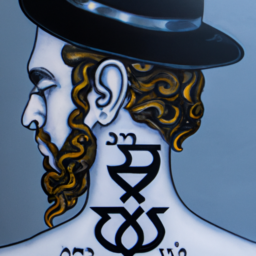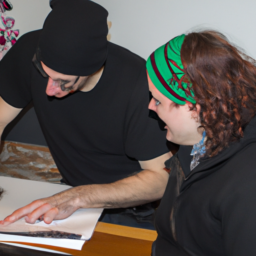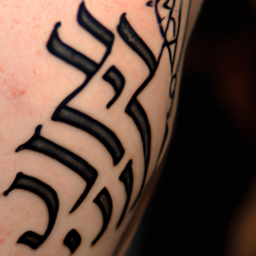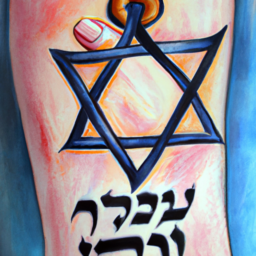“Understanding the Cultural Significance of Hebrew Tattoos”
The Allure of Hebrew Tattoos
In recent years, the fascination with Hebrew tattoos has surged beyond the borders of Israel and Jewish communities, captivating the hearts and skins of many non-Hebrew speakers around the globe. This trend is not merely a fleeting fashion statement but a profound expression of identity, spirituality, and a quest for meaning. The allure lies in the exotic and ancient script, which carries a mystique that transcends linguistic boundaries. However, before one decides to etch a piece of this venerable language onto their body, it is crucial to delve into the cultural and religious implications that accompany such a choice.
The Hebrew language is not just a means of communication but a vessel of immense historical and spiritual significance. It is a language that has weathered the storms of time, outliving empires and witnessing the birth and rebirth of a nation. Its characters are not mere letters but symbols of a rich heritage that has been meticulously preserved through millennia. The decision to get a Hebrew tattoo should not be taken lightly, as it is more than skin deep—it is a profound nod to a culture steeped in history and tradition.
The Ancient Roots of Hebrew Script
The Hebrew language is one of the oldest known languages, with its origins tracing back over 3,000 years. It is the language of the Bible, the foundational text of Judaism and a significant document in Christianity and Islam. The Hebrew script, with its distinctive characters, has been a unifying thread for the Jewish people, serving as a symbol of their enduring identity through centuries of diaspora and persecution.
The connection between Hebrew script and Jewish identity is profound. Each letter in the Hebrew alphabet carries historical weight and significance. The language itself is considered a sacred gift, a divine tool of creation according to Jewish mysticism. The very act of writing in Hebrew is, for many, a spiritual practice, a way to connect with the divine and the ancestors who spoke and preserved the language against all odds.
Hebrew Tattoos as a Form of Personal Expression
For individuals seeking a more personal and spiritual connection in their body art, Hebrew tattoos offer a unique avenue for self-expression. These tattoos often represent significant life events, personal beliefs, or cherished values. They can be a form of tribute, a reminder of one’s roots, or an expression of one’s faith. The language’s inherent beauty and the depth of its characters make it an ideal choice for those looking to convey a message that is both personal and universal.
The trend of celebrities sporting Hebrew tattoos has further propelled its popularity. High-profile figures from the entertainment and sports industries have embraced Hebrew script, often sparking curiosity and emulation among fans. However, the influence of celebrities also underscores the importance of understanding the language and culture behind the script. A tattoo is a permanent decision, and when it involves a language that is not one’s own, it demands a higher level of responsibility and respect.
In conclusion, the enchantment of Hebrew tattoos is undeniable. They offer a connection to an ancient language, a storied culture, and a profound spirituality. However, this allure must be balanced with a deep respect for the cultural and religious significance of the Hebrew script. As the trend continues to grow, it is imperative that individuals approach Hebrew tattoos with a sense of reverence and responsibility, ensuring that their personal expression honors the rich heritage from which it draws inspiration. Only then can the beauty of Hebrew tattoos be truly embraced, creating a meaningful and respectful bond between the wearer and the ancient script that adorns their skin.
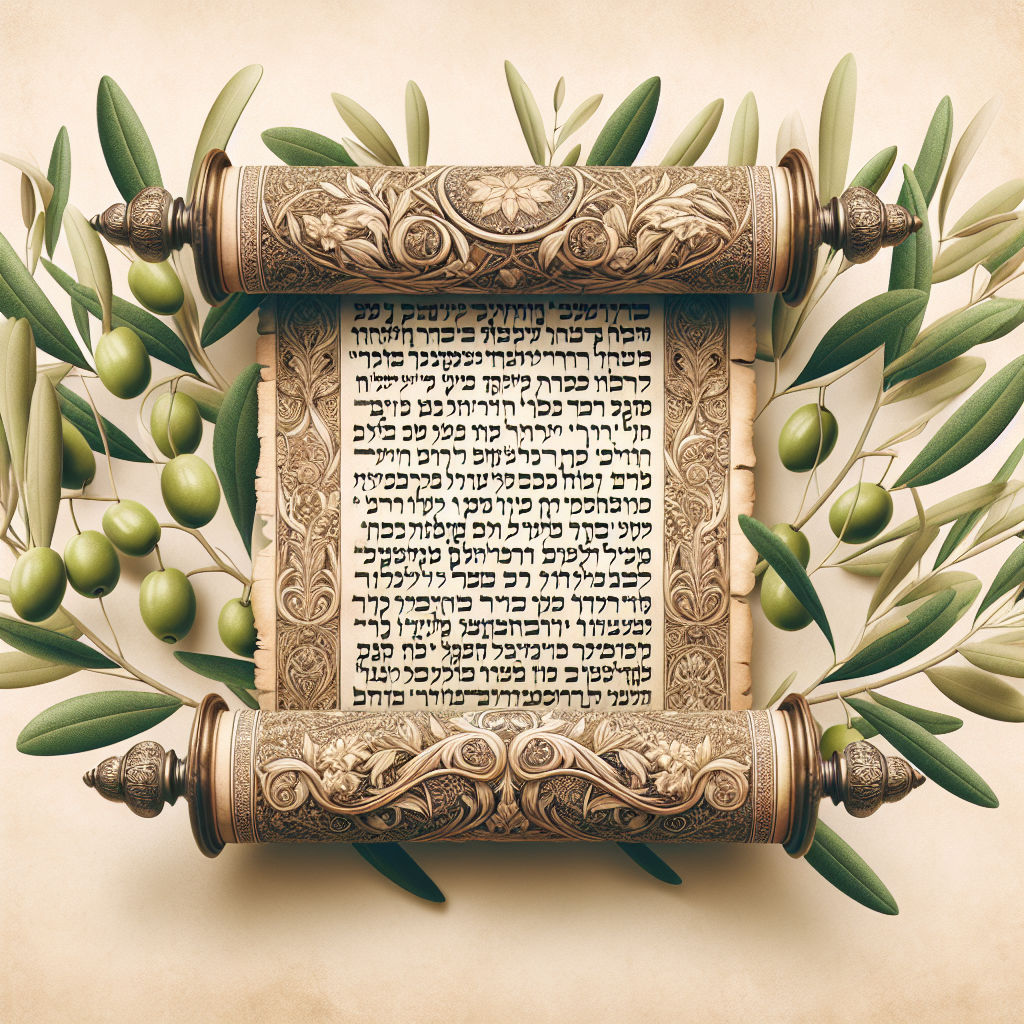
The Sacredness of Language in Judaism
The Hebrew language, known as Lashon HaKodesh or the holy tongue, holds a place of profound reverence within Judaism. This ancient language, steeped in religious and cultural significance, is not merely a tool for communication but is considered the very fabric of creation. According to Jewish tradition, the world was spoken into existence through Hebrew, the language God used to articulate the universe into being. This divine association imbues Hebrew with a sanctity that resonates deeply within the Jewish soul.
The sacredness of Hebrew extends beyond its biblical origins. It is the language of prayer, the medium through which the Jewish people have conversed with the Divine for millennia. The Torah, the central religious text of Judaism, is written in Hebrew, and its study is a cornerstone of Jewish life. The characters of the Hebrew alphabet themselves are thought to hold mystical significance, with Kabbalistic traditions exploring their esoteric meanings and powers.
Given this profound connection to spirituality and identity, the use of Hebrew in tattoos can be a subject of contention within Jewish communities. The Torah explicitly forbids tattoos in Leviticus 19:28, “You shall not make gashes in your flesh for the dead, or incise any marks on yourselves.” This prohibition is often interpreted as a blanket ban on all forms of tattooing, making the act itself a point of religious controversy. For many observant Jews, the idea of inscribing one’s skin with Hebrew script, particularly sacred texts or names of God, can be seen as a desecration of the holy language.
Despite these religious considerations, the allure of Hebrew tattoos persists, often among those outside the Jewish faith who are drawn to the language’s beauty and mystique. It is crucial for individuals considering a Hebrew tattoo to understand the weight of what they are embracing. A tattoo is not merely a fashion statement but a permanent mark that carries cultural and religious implications. Engaging with the language respectfully means recognizing its sanctity and the potential sensitivities it may arouse within the Jewish community.
The Importance of Accurate Translation
The road to a Hebrew tattoo is fraught with pitfalls, chief among them being the risk of mistranslation. The internet is rife with examples of Hebrew tattoos gone awry, where individuals have been left with gibberish, misspelled words, or phrases that convey unintended meanings etched onto their skin. Such errors can stem from the complex nature of the Hebrew language, which is written from right to left and includes characters that may look similar to the untrained eye but represent vastly different sounds and concepts.
The necessity of consulting with language experts cannot be overstated. Hebrew is not a language that can be accurately translated with a simple online search or by using automated translation software. The nuances of grammar, context, and cultural connotations require a deep understanding of the language, something only a native speaker or a trained professional can provide. Ensuring accuracy in translation is not just about avoiding embarrassment; it’s about showing respect for the language and the culture from which it originates.
Moreover, Hebrew is a language that evolves. Modern Hebrew, as spoken in Israel today, can differ significantly from the biblical and liturgical Hebrew found in sacred texts. This distinction is crucial when selecting a phrase or word for a tattoo. What may seem like a profound statement in modern Hebrew could have a different or even nonsensical meaning in its classical form. The reverse is also true; sacred texts may contain archaic language that does not translate well into contemporary life.
Symbolism in Hebrew Letters and Words
The allure of Hebrew tattoos often lies in the rich symbolism associated with the language’s letters and words. Each letter in the Hebrew alphabet is believed to hold unique spiritual energy and meaning. Kabbalistic teachings delve into the mystical aspects of these letters, suggesting that they are more than mere symbols; they are the building blocks of the universe, containing within them the secrets of creation.
Popular Hebrew words and phrases used in tattoos often carry deep significance. For example, “Chai,” meaning “life,” symbolizes the value of life in Jewish culture and is a common choice for those seeking a tattoo with a positive message. “Ahava,” which means “love,” is another favorite, representing not just romantic love but the broader, universal love that is a core Jewish value. “Shalom,” meaning “peace,” is a powerful word that encompasses peace, harmony, and completeness.
The deeper meanings behind these words are what make them so appealing for tattoos. However, it is essential to approach their use with the gravity they deserve. A Hebrew tattoo should not be a spur-of-the-moment decision but a carefully considered choice that honors the language’s history and spirituality.
In conclusion, the beauty of Hebrew tattoos is undeniable, but it must be embraced with respect and a genuine understanding of the language’s sacredness, the importance of accurate translation, and the profound symbolism inherent in its letters and words. By approaching Hebrew tattoos with the reverence they warrant, individuals can ensure that their personal expressions of identity and belief are both meaningful and respectful.
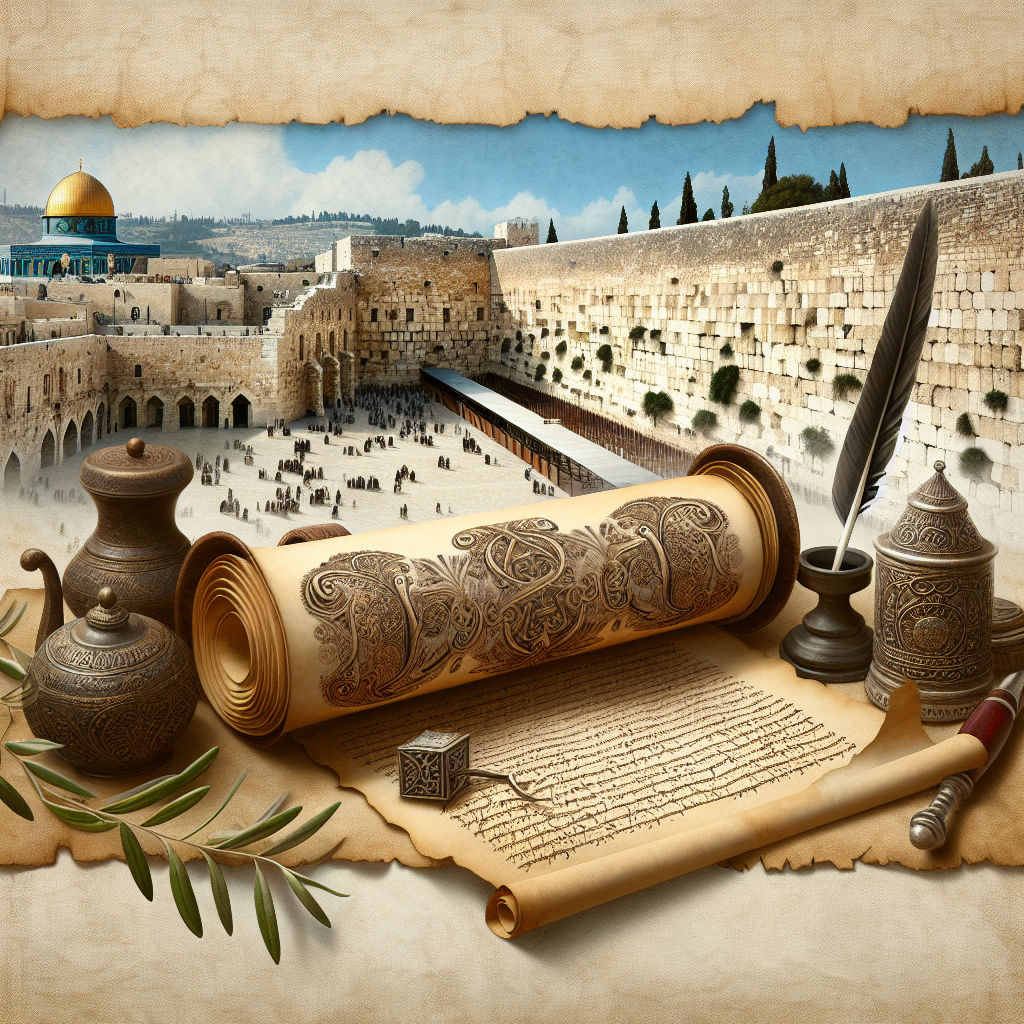
Cultural Appropriation vs. Cultural Appreciation
In the intricate tapestry of global cultures, the line between cultural appropriation and cultural appreciation is often blurred. This is particularly true when it comes to the adoption of cultural symbols in personal expressions such as tattoos. Hebrew tattoos have become a canvas for controversy, as non-Hebrew speakers adorn their bodies with this ancient script. But what distinguishes appreciation from appropriation?
Cultural appropriation occurs when individuals adopt elements of a culture without understanding or respecting the original context and significance. It often involves a power dynamic where the appropriating culture exploits the symbols of a marginalized group. In contrast, cultural appreciation is about engaging with and respecting another culture, seeking to understand its values and traditions.
Hebrew tattoos can easily fall into the trap of appropriation when individuals choose Hebrew words or phrases solely for their aesthetic appeal without grasping their cultural and religious weight. This can be seen as a form of exoticism, reducing a rich and ancient language to a mere fashion statement. It’s essential to approach Hebrew tattoos with a deep respect for Jewish history and religion. Engaging with the culture, learning about the language’s nuances, and understanding the significance behind the chosen words or symbols is a step towards appreciation rather than appropriation.
The Impact of Hebrew Tattoos on Jewish and Israeli Communities
The trend of Hebrew tattoos has not gone unnoticed by Jewish and Israeli communities. Reactions are mixed, with some viewing it as a form of flattery—a sign that others find beauty and meaning in Jewish culture. Others, however, feel uncomfortable or even offended by the sight of sacred Hebrew words on the skin of those who do not share their cultural or religious heritage.
For many Jews, Hebrew is more than a language; it’s a symbol of survival and resilience. Seeing it used by outsiders without the same emotional connection can feel like a trivialization of their history. Moreover, the Jewish law’s traditional stance on tattoos complicates matters further, as tattoos are generally frowned upon in Judaism. This adds another layer of complexity to the issue, as the act of getting a Hebrew tattoo can be seen as disrespectful to the very culture it’s meant to honor.
However, there is also the potential for Hebrew tattoos to spark interest and dialogue about Jewish culture. When done with respect and understanding, they can serve as a bridge between communities, encouraging people to learn more about the language and its speakers. It’s a delicate balance, but with the right approach, Hebrew tattoos can contribute to cultural exchange and mutual respect.
Ethical Considerations and Personal Responsibility
The ethical considerations surrounding Hebrew tattoos are manifold, and they rest on the shoulders of both tattoo artists and their clients. Tattoo artists have a responsibility to educate themselves and their clients about the cultural significance of the symbols they ink. It’s not just about the artistry; it’s about the legacy and meaning behind the art. Artists should engage in conversations with clients to ensure they understand the weight of their choices and encourage them to delve deeper into the culture they are borrowing from.
On the other hand, individuals bear the personal responsibility of researching and understanding the implications of their choices. Before getting a Hebrew tattoo, one should consider not only the immediate appeal but also the long-term impact. Will the tattoo be a source of connection or division? Does it honor the culture it represents, or does it risk misinterpretation and offense?
In the age of information, ignorance is a choice. With countless resources at our fingertips, taking the time to learn about the history and significance of Hebrew script is a small but crucial step towards making an informed decision. It’s about more than just avoiding a faux pas; it’s about showing genuine respect for a culture that has thrived for millennia.
In conclusion, the allure of Hebrew tattoos is undeniable. They offer a unique way to express personal stories, beliefs, and connections. However, as with any cultural symbol, they come with a responsibility to honor the culture they originate from. By navigating the fine line between appropriation and appreciation with care, and by considering the impact on the communities behind the script, individuals can embrace the beauty of Hebrew tattoos in a way that enriches both the wearer and the culture they pay homage to. It’s a journey of respect, understanding, and, ultimately, a deeper engagement with the world’s rich cultural heritage.
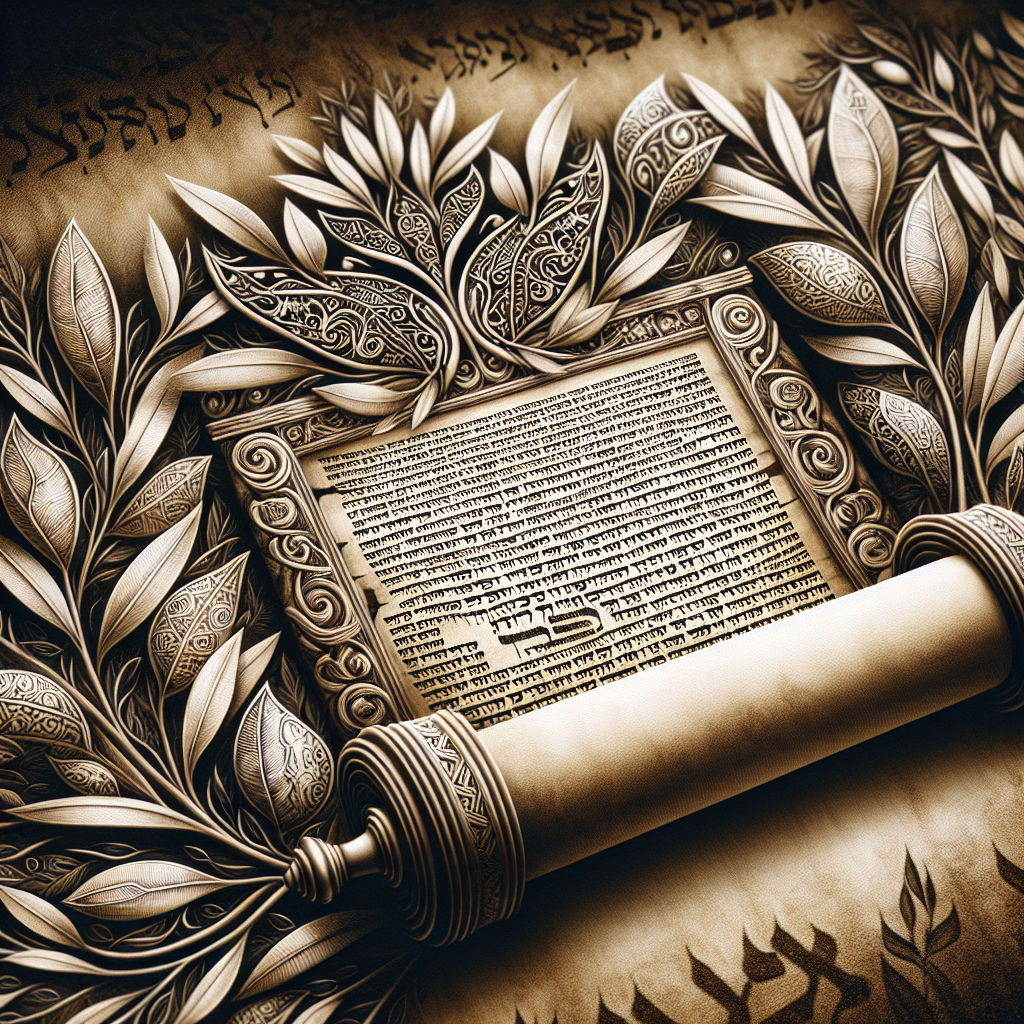
Embracing the Beauty of Hebrew Tattoos with Respect
In the tapestry of modern body art, Hebrew tattoos stand out with their ancient allure and profound meanings. As the trend for these tattoos burgeons, it’s imperative to navigate the cultural crossroads with sensitivity and respect. The decision to etch a piece of another culture’s soul onto your skin should not be taken lightly. It’s a journey that demands an informed mind, a respectful heart, and a deep appreciation for the heritage behind the script.
Hebrew, with its storied past and spiritual resonance, offers a unique aesthetic that speaks to many, regardless of their background. But before succumbing to the visual charm of this ancient language, one must pause and ponder the implications. The Hebrew script is not just a set of symbols; it’s a carrier of millennia-old traditions and beliefs. To embrace the beauty of Hebrew tattoos is to engage with a culture that is steeped in history and sacredness.
The responsibility of making an informed decision lies not only with the individual but also with the tattoo artists. These custodians of culture and craft have the power to educate and guide their clients through the intricate landscape of Hebrew iconography. It’s essential for artists to understand the weight of the symbols they’re inscribing and to convey this understanding to those who seek their services. A tattoo is a dialogue between the artist, the wearer, and the culture from which the tattoo originates; it should be a conversation marked by respect and knowledge.
For those drawn to the mystique of Hebrew tattoos, it’s crucial to delve beyond the surface. Engaging with the culture means more than just picking a word or phrase that seems appealing. It involves learning about the history, the nuances, and the contemporary significance of the language. It’s about recognizing that each letter and vowel point carries a story, an identity, and a piece of a collective memory that stretches back through time.
The beauty of a Hebrew tattoo is magnified when it’s chosen with a full heart and an understanding mind. It’s not merely about aesthetics; it’s about finding a connection that resonates on a personal level while honoring the source of that connection. Whether it’s a verse that holds spiritual significance, a word that captures a personal philosophy, or a name that bears deep emotional ties, the chosen inscription should be a reflection of a thoughtful and respectful engagement with Hebrew culture.
Moreover, approaching Hebrew tattoos with respect means being aware of the potential for cultural appropriation. It’s a fine line between appreciation and appropriation, and crossing it can lead to misunderstanding and offense. To appreciate is to honor and understand; to appropriate is to take without the depth of engagement that true appreciation requires. It’s about intent, context, and the way in which the tattoo is presented and perceived.
In conclusion, the allure of Hebrew tattoos is undeniable. They offer a timeless connection to a rich cultural and spiritual heritage. However, this allure must be matched with a commitment to respect and understanding. By taking the time to research, consult with experts, and reflect on the cultural significance, individuals can ensure that their choice of a Hebrew tattoo is not only beautiful but also meaningful and respectful. Let us celebrate the beauty of Hebrew tattoos by embracing the culture with the reverence it deserves, and in doing so, enrich our own lives with the depth and diversity of human expression.
